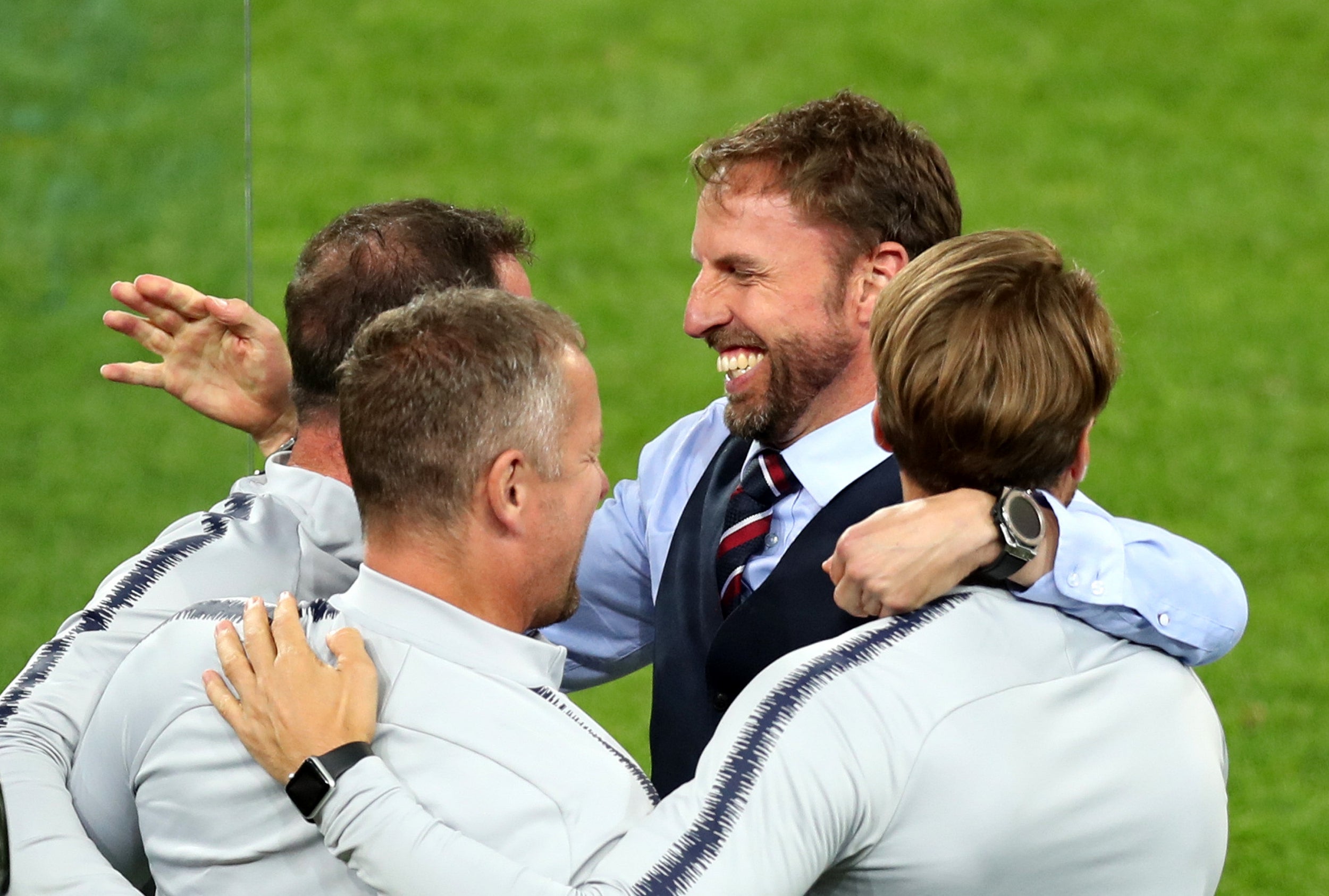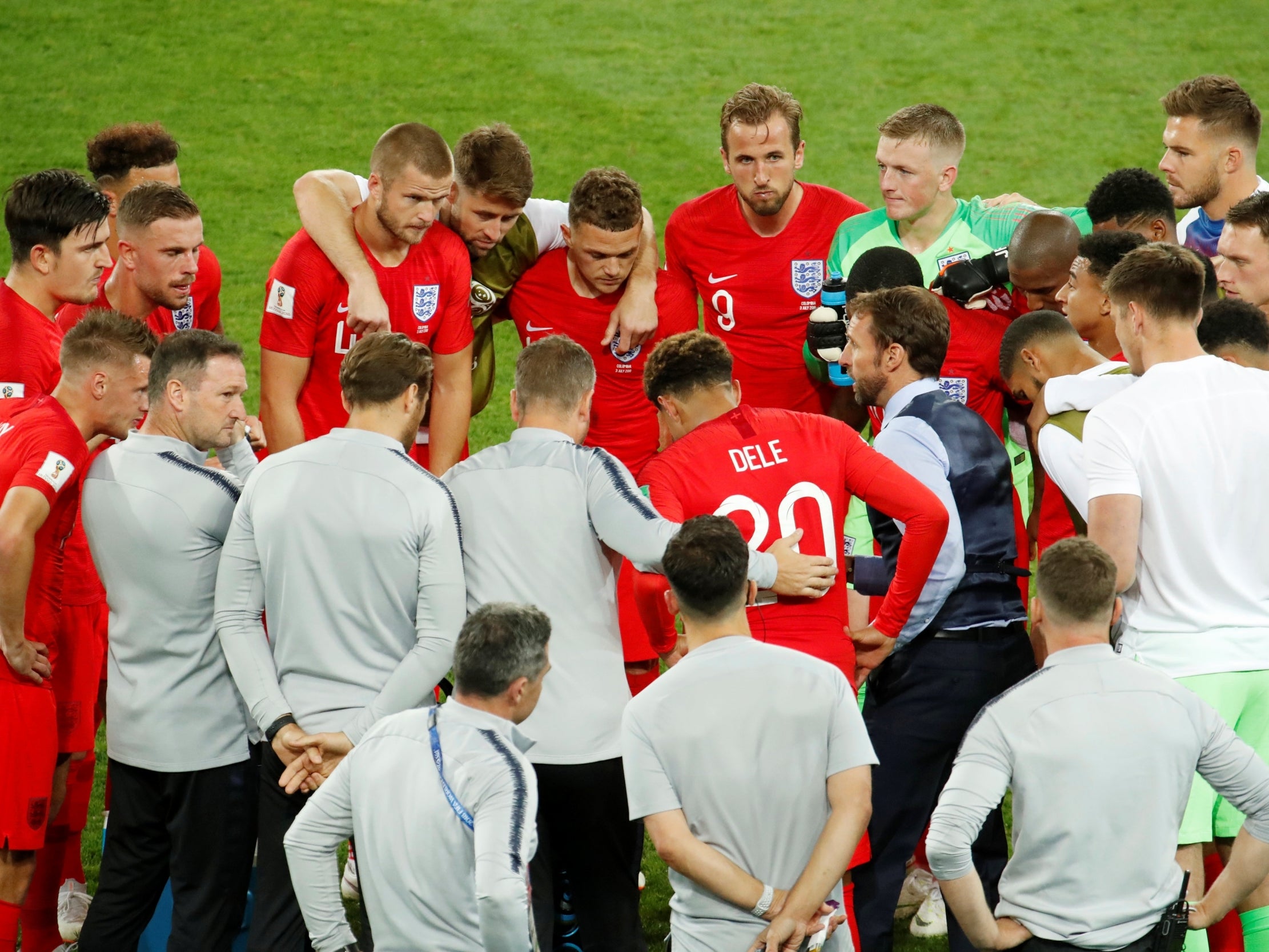For Gareth Southgate, the penalty shoot-out win was not just vindication but redemption.
Ever since his infamous miss against Germany in 1996, he has known that England need to do penalties differently, do them better. Not making it up as they go along, as they did that night at Wembley, when Southgate stumbled onto centre-stage despite only ever having taken one penalty in his life. “I was a volunteer really,” Southgate admitted last week. “The type of character I was, I felt you should put yourself forward.”
Out with the well-intentioned but doomed Victorian amateurism. What England needed to do was to “own the process”. Not leave anything to chance. Focus on planning and practice, how to score their kicks, and how to stop the opposition’s. That might sound obvious, but it took a man who has been haunted by a penalty miss for over 20 years to finally de-mystify penalties for us.
After weeks of hard work, Southgate’s new approach finally paid off here at the Spartak Stadium in Moscow, just before midnight.
Four of England’s five takers scored: Harry Kane, Marcus Rashford, Kieran Trippier and Eric Dier, who scored the winning kick. Rashford had been brought on to play in midfield in extra-time so that he could be part of a shoot-out. Nothing was being left to chance.
“We had talked long and hard about owning the process of a shootout,” Southgate said afterwards. England even managed to survive Jordan Henderson having his kick saved. But Southgate never doubted, because he trusted that his takers would feel the reward of their hard work.
“Even when our first penalty was saved, I’ve seen enough shootouts to know the first miss isn’t the key one,” Southgate said. “I believed our goalkeeper would save one, and the technique of our players in taking them was superb. I have to credit our big support team who have done a lot of work in that area over the last few months.”

There was some redemption too for Pickford, who let in Yerry Mina’s painful 93rd minute equaliser only to save brilliantly from Carlos Bacca to swing the shoot-out England’s way. Pickford said afterwards that he guessed the right way for all of Colombia’s kickers - except for Falcao - and that was credit to the preparation he had done along with goalkeeping coach Martyn Margetson.
“We did our research on them, with Margetson and the analysis staff,” Pickford said. “I had a fair feeling [where they would go]. Falcao was really the only one who didn’t go ‘his’ way. But it’s about: set, react and go with power. And I’ve got power and agility, I don’t care if I’m not the biggest keeper. I’ve got that power and agility to get around the goal. I’m very good at it.”
Pickford’s save from Bacca should go down as the turning point of the whole night. It was certainly better executed than Dier’s winning kick, which Ospina should have saved. But Pickford, knowing Bacca likes to go top right, dived early, not too low, extending a powerful left hand up into the air to keep the ball out. Pickford’s own power and agility, as he put it, combined with months of research and preparation to save Bacca’s kick, and save England’s summer.

Southgate was delighted. “[Jordan] had studied all their takers, and great credit to the staff and to him for taking on board that information and preparing in the right way,” he said. “You don’t always get what you deserve in life, but I think tonight we did.”
Southgate would never put it quite this way, but so much of that credit is down to him. He knows the weight of penalties better than anyone else in English football history. And as part of his work since taking over as England manager, he has revolutionised the team’s approach. Mature, planned out, sensible, meticulous: England’s approach to penalties is a reflection of Southgate’s approach himself.
As he explained in Kaliningrad last week, in the aftermath of the 1-0 defeat, he has had almost his whole adult life pondering this topic, and how to get it right.
“I’ve had a couple of decades thinking it through,” Southgate said. “It’s not about luck. It’s not about chance. It’s about performing a skill under pressure. There are things you can work on, things that can be helpful for the preparation for the players. We have studied it. There is a lot we can do to own the process, and not be controlled by it.”
No-one could dispute the intention behind it when Southgate spelled out his plans. But then no-one knew how well this would work until England finally came into contact with the harsh binary of a shootout.
On Tuesday night in Moscow, Southgate’s plan worked. His own personal lessons had been learned. The team had won, but Southgate had a personal redemption he may never have dreamed of.







